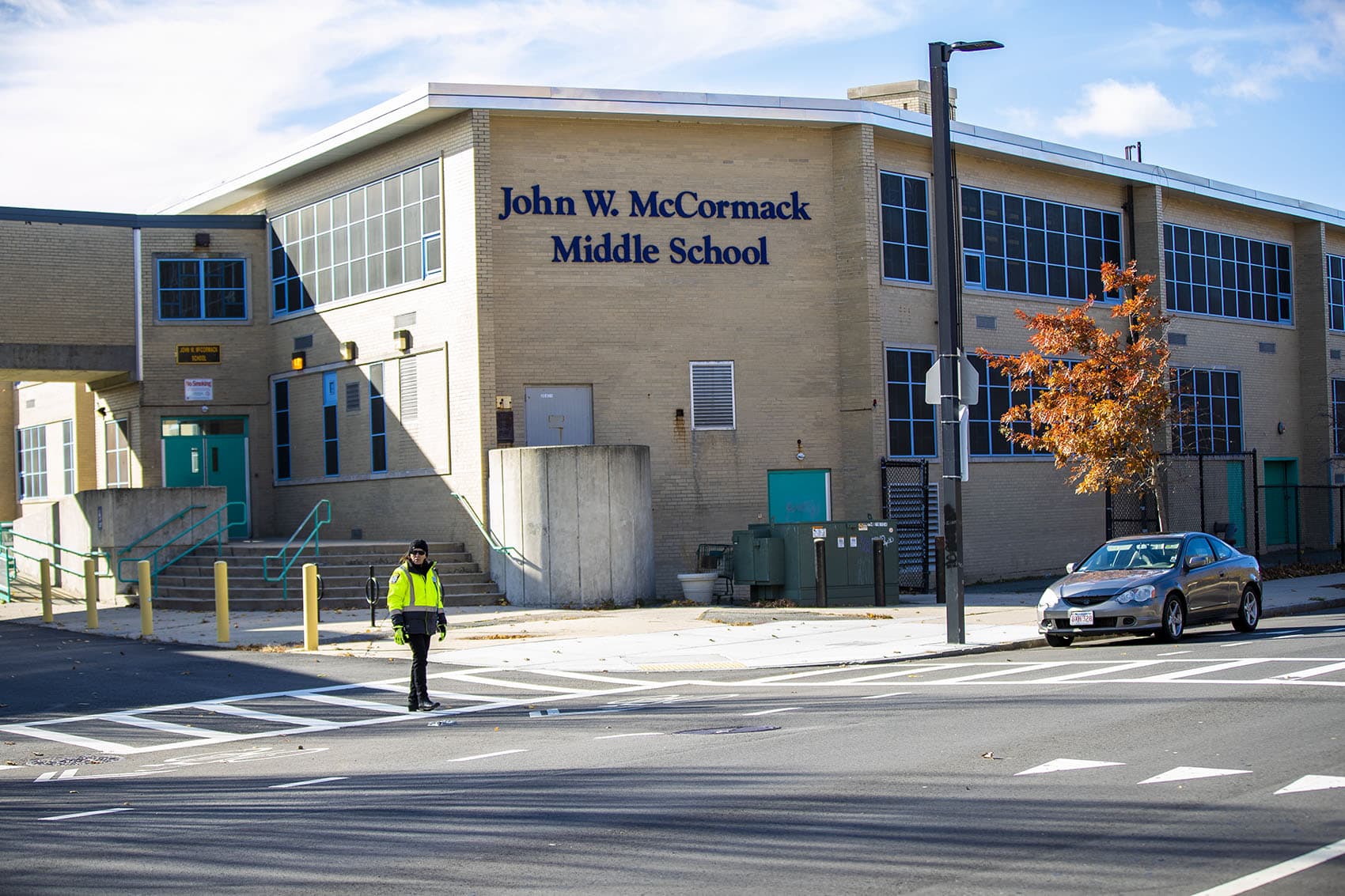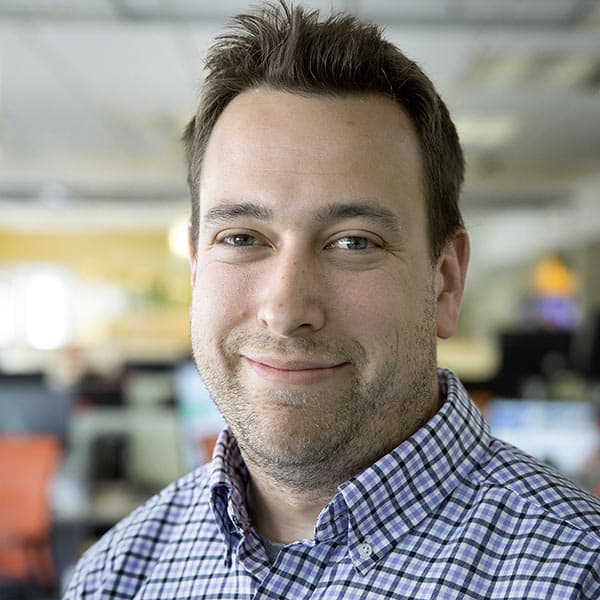Advertisement
Being Black In Boston's Public Sector
Resume
We have been having a series of conversations this month about what it's like to live and work in our communities if you're Black.Last week, we spoke with three Black professionals about their experiences in the private sector. Earlier this week, we revisited a conversation about Black fatherhood. Today, we're joined by three professionals whose work is focused on public service.
We hear from Monique Symes, a 6th and 7th grade English teacher at the John W. McCormack Middle School in Dorchester, Andrea Perry, executive director of YouthConnect, a program of the Boys & Girls Clubs of Boston in partnership with the Boston Police Department, and Jerry Cohen, a second generation driver with the MBTA, member of the Boston Carmens' Union, and lifelong Boston resident.
Interview Highlights
Dearing: What does it mean to you to be Black in Boston?
Symes: "In short, I would answer that being Black in Boston to me means activism. It means using my voice to share about things that are happening, things that I see, and also helping the young people that I work with every single day to try to make sense of what's happening around them, because...that's my best way of teaching. I think of teaching in terms of coaching. I learn as much from my young people as they do for me. And teaching and learning is really an exchange. And so my identity has really transitioned throughout my life. And although I've primarily only lived in Boston, I can say that I feel a lot more secure in my identity as a Black woman in the city that I grew up in and lived in. And I hope that I can encourage my young people to feel that same pride and confidence as they continue to grow up."
Perry: "I came in to the city in the mid 90s and I've been here ever since. But when I came in my 20s, I was in a much different place in my life than I am right now. And so I think about those transitions from being an early professional to now being a parent and thinking about what it means to be a Black female leader in the nonprofit sector. What does it mean to the young people we work with at YouthConnect? What does it mean to now raise a child here in the city who was born and raised? And what does that mean for her to be a young Black girl?"
Cohen: "I agree with a lot of that, also, like growing up I played basketball, traveling around the states and a lot of people didn't think there were Black people in Boston. So going around and telling them I'm from Boston, it was like they were kind of shocked, like, "Oh, there's Black people there?" So it kind of gave me a sense of pride being Black from Boston."
"And although I've primarily only lived in Boston, I can say that I feel a lot more secure in my identity as a Black woman in the city that I grew up in and lived in. And I hope that I can encourage my young people to feel that same pride and confidence as they continue to grow up."
Monique Symes
Dearing: So the three of you all went into professions that are of service to others. Did any of you experience surprises or barriers as a teacher, a social worker, a T driver, as you tried to enter your professions?
Perry: "My experience in graduate school was predominantly white female... And even when I think about it now, it is predominately white female. ...And so I was very fortunate that my advisor at school was a Black person and that my field supervisors were Black people. And my first supervisor, when I got a job...was a person of color as well. And so that was something that was important for me, to seek out those mentors and to seek out those professionals who understood what it was like to kind of navigate the space professionally."
Symes: "Definitely echoing Andrea, in the beginning I had and was very fortunate enough to have female Black role models from a very young age. ...Our young people, from three to four different schools around the city of Boston, really echoed that having someone in the classroom that not only looks like them, but can share and talk about the challenges that they, too, have gone through... It's being able to be in communication, in conversation and in community with people. And just the just representation alone is not enough. And so I would definitely say that I was fortunate enough to have that representation and have that role modeling and still do. And I share that with my experience with my students every day."
Dearing: We're going through a huge racial reckoning in the country now... In this last year as our country has developed a collective awareness of our systemic racism, has anything in your work gotten either easier or harder that you would want to talk about?
Symes: "It took me a while to even feel like it was OK to share myself authentically as an adult educator. I didn't feel that I could share conversations and books that were focused on race pretty easily unless I could point to a standard that I was hitting, or unless I got approval from someone who was observing me that I could read or do this thing. And that felt really, really disheartening. And this happened more than once. ...And now there is a shift where this is what we need to talk about all the time. And there seems to be a lot more pressure to not do it authentically. And that's what I have a problem with. ...And so I just wanted to just share that as both a challenge and both a pleasant experience that I have been able to be in more dialogue and community spaces with my colleagues and my young students around race."
"[To] help staff personally and professionally try to make sense of something that does not make sense — and shouldn't make sense — just adds to the weight of already being a social worker and working with the young people we work with at YouthConnect."
Andrea Perry
Perry: "It was definitely harder, personally and professionally. ...We are working with young people who are encountering the police every day and then to watch the murder of George Floyd, and to...help staff personally and professionally try to make sense of something that does not make sense — and shouldn't make sense — just adds to the weight of already being a social worker and working with the young people we work with at YouthConnect. And then personally, I have an 11-year-old daughter, and so we are having conversations. And to see part of her spirit, I feel like not shine as brightly is just as just hard as a parent to sit there and watch."
Cohen: "I would say there's a lot of tension. I would say, when these events have occurred with operators, whether you're white, Black or whatever. You can just tell things are different now, like there's definitely a lot more tension in the lobbies, if something is on the news, whether people are agreeing or disagreeing. It's just very different now. I know people speak up more and they might like what you say, but I feel like these conversations need to be held."
This segment aired on February 24, 2021.
This segment aired on February 24, 2021.

